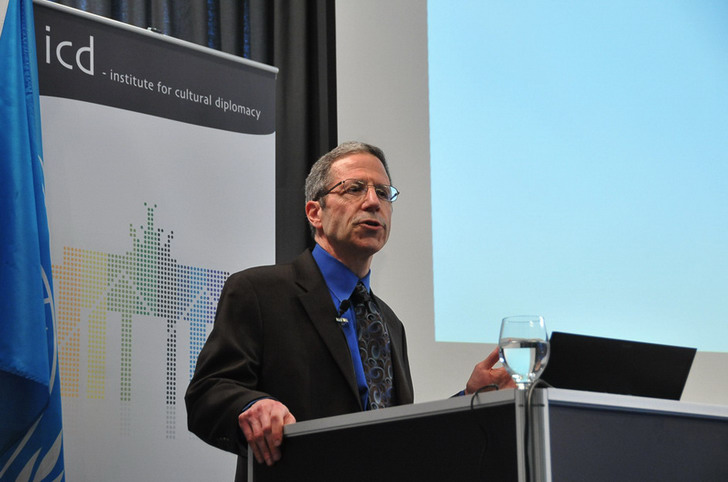Difference between revisions of "Prof. Eric S. Maskin"
Przyvylska (talk | contribs) (Created page with "Cultural Diplomacy & Business Relations By Prof. Eric S. Maskin (Professor of Economics, Harvard University; USA; Nobel Prize Winner in Economics) File:Erik S Maskin.jpg|400...") |
|||
| (4 intermediate revisions by 2 users not shown) | |||
| Line 1: | Line 1: | ||
| − | Cultural Diplomacy & Business Relations | + | [[Cultural Diplomacy]] & Business Relations |
By Prof. Eric S. Maskin (Professor of Economics, Harvard University; USA; Nobel Prize Winner in Economics) | By Prof. Eric S. Maskin (Professor of Economics, Harvard University; USA; Nobel Prize Winner in Economics) | ||
| − | [[File: | + | [[File:Eric S Maskin.jpg|400x200px|framed|left|Eric S. Maskin]] |
| − | We know that different countries, because of their different cultures, do business differently, and for them to trade profitably with one another, they have to have some idea of what business is like in the other culture. That’s where I think cultural exchanges can play an important educational role. By learning about another country’s culture, you learn how to conduct business with that country. | + | We know that different countries, because of their different cultures, do business differently, and for them to trade profitably with one another, they have to have some idea of what business is like in the other [[culture]]. That’s where I think cultural exchanges can play an important educational role. By learning about another country’s culture, you learn how to conduct business with that country. |
… | … | ||
Latest revision as of 13:39, 1 April 2014
Cultural Diplomacy & Business Relations By Prof. Eric S. Maskin (Professor of Economics, Harvard University; USA; Nobel Prize Winner in Economics)
We know that different countries, because of their different cultures, do business differently, and for them to trade profitably with one another, they have to have some idea of what business is like in the other culture. That’s where I think cultural exchanges can play an important educational role. By learning about another country’s culture, you learn how to conduct business with that country.
…
The World Bank, for example, is involved in providing capital, but also technical assistance, in all sorts of projects in developing countries. But for those projects to be successful, the Bank has to understand the thought processes in the minds of the people who are actually undertaking the projects; their thought processes might not be the same as those of the advisors. Somehow that gap has to be bridged, and I think Cultural Diplomacy is a way of doing that.
- The Berlin International Economics Congress 2012; Berlin, Germany, March 2012
